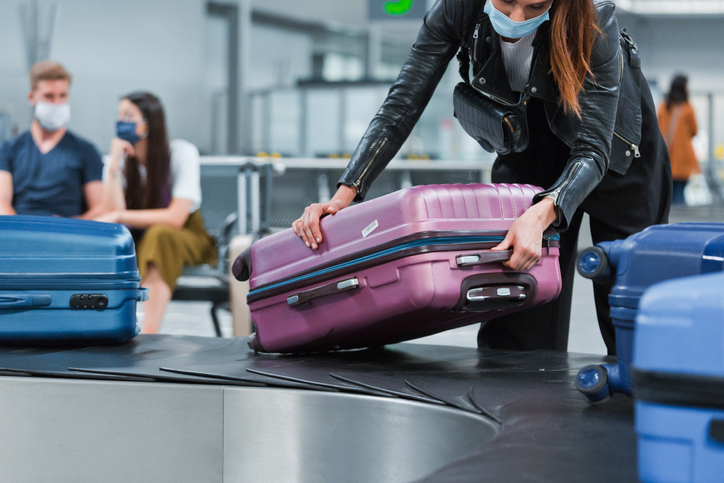
The move follows media highlighting a memo that warned staff they faced possible "termination" if a border closure meant they were stuck across the Tasman for an "extended" amount of time beyond their approved leave dates.
"On reflection, and based on feedback, we will be reviewing our communications to our people on international travel by staff during Covid-19," head of external affairs Rich Llewellyn told the Herald this afternoon.
"We can see we didn't get the messaging right on this one. We were trying too hard to cover all possible scenarios and risks for our people, no matter how unlikely or complex, rather than simply working with any of our people who might be impacted while on overseas travel in future on a case by case basis."
This morning, it emerged that Vodafone had released an internal memo saying an employee on personal travel to Australia could face dismissal if they are trapped across the Tasman for an "extended" period of time.
And 2degrees' HR boss also acknowledged to the Herald that, in an extreme case, a bubble stranding could lead to a dismissal, while Spark says it would consult with an employee as a "last resort".
Vodafone's internal memo, circulated to some of the company's staff last week, included the lines:
"It is strongly recommended that any employee planning an overseas trip discusses it with their people leader before booking flights.
"Employees should also understand that if they are prevented from returning to NZ and their home/work for an extended period beyond their original approved leave dates, their employment may be terminated."

Employment lawyer Jennifer Mills told the Herald she would not recommend employers release a bubble travel policy including such a dismissal provision.
Where personal leave had been granted, and an employee was subsequently trapped across the Tasman by a border closure, paid leave should be used up in the first instance.
Once that was exhausted, "the appropriate response would be unpaid leave", Mills said.
Mills said that, in her view, the dismissal provision of Vodafone NZ's policy would not hold up in an Employment Relations Authority hearing or the Employment Court.
Dr Alan Toy, a senior lecturer in commercial law for Auckland University's Business School, said: "The test is what a fair and reasonable employer could have done." He also saw a reasonable employer offering extra paid leave beyond the agreed period, then unpaid leave, for a border-closure stranded employee. Remote work or part-time remote work options should be explored.
Toy said unpaid leave of a couple of weeks would be seen as reasonable in most cases, but did see some wiggle room for an employer if a person was stranded for an "extended period of time".
"At some point in time, probably it would become reasonable [to dismiss an employee]," Toy said. He added that a "reasonable" length of time would vary by industry. None of the bubble travel advisories the academic had sighted had included a specific time frame.

Llewellyn confirmed the authenticity of the memo.
But Llewellyn added the telco was following a similar policy to other NZ companies, and that the termination comment was made in the context of, "Outlining an absolute worst-case scenario if an employee is in a role that cannot be performed overseas, is unable to return and has exhausted various leave options."
"Like many employers, we recently cautioned our staff to consider all the various possibilities before they depart on personal travel overseas, including the potential they may be unable to return to New Zealand from overseas for extended periods, and to discuss the options if that were to happen with their manager in advance," Llewellyn said.
Business travel for the telco's staff remains restricted, with a personal sign-off by chief executive Jason Paris required for exceptions. Those who do get approval have to formulate an action plan with their leader in case they do get stranded.
A stranding could happen on a moment's notice. In his joint appearance with the PM on April 9 to announce the terms of the transtasman bubble, Covid-19 Response Minister Chris Hipkins said each country will make its own decisions about any border closures - which could be without notice. Hipkins said it will be "good-faith decision-making not joint decision-making".
Why not remote-work?
Vodafone NZ has recently championed remote working during the pandemic. Could a staff member trapped in Australia do their job from afar?
"We are very supportive of free-range working and, every day up to half of our office-based staff members embrace working from home," Llewellyn said.
"But there are a number of different employment types within our business. Retail staff, for example, generally need to physically work from a retail store as part of their terms of employment – while a finance team member may simply need a laptop and a good internet connection.
"While working from Australia or a managed isolation facility is completely possible for some employees, depending on their role requirements and at the discretion of their people leader, we don't want those people who may not be able to do their jobs remotely to be caught unawares."
2degrees' policy
2degrees policy is to talk all care, but the company's HR boss also acknowledged that a stranding could ultimately - as per Vodafone's policy - lead to a dismissal.
"We understand that our people will be interested in heading across the ditch to see their loved ones, or have a holiday. Our advice to them is that it's very much traveller-beware," 2degrees chief people officer Jodie Shelley said.
"Our approach is to talk our people through our 'what-if' scenarios so and we ask that if they're in a role where they can work remotely to take their IT kit with them so if they 'get stuck' they'll be able to 'return to work' at the end of their holiday - whether that's from Australia or MIQ).
"We have made our people aware that if they're not able to work remotely, we'll talk to them about options – and there's a real spectrum that will vary from person-to-person.
"For someone stuck, who didn't take their work gear with them or can't otherwise work remotely, they might chose to use annual leave or take leave without pay in the first instance.
"If it gets to a point that someone has been on leave without pay for an extended period, we'll assess that on a case-by-case basis."
"We do point out to our people, that in the most extreme of cases, that in a lockdown of a significant duration, and where a team member hasn't taken their work kit/can't work remotely, that there may be an impact on a person's ability to perform a role and in turn – again this is extreme examples – this could impact their ongoing employment.
"We take real pride in the efforts we go to, to minimise the chances of that happening."
Spark NZ's policy
Spark also said that, ultimately, it could have to consult with a stranded employee about their future "as a last resort".
"Our approach would be to work with them on a case-by-case basis to find a solution, which could include further annual leave or unpaid leave," Spark corporate relations lead partner Lucy Fullarton said.
"As an absolute last resort, where an employee was unable to return to New Zealand for an extended period of time and no other solution could be found, we may naturally need to consult with them about how we would manage their specific situation.
"Obviously, we'd take an approach that was constructive, compassionate and in adherence with all legal requirements."
In terms of the broad situation, Fullarton said, "Now that the transtasman bubble has opened, our people are able to travel to Australia just as any other New Zealander is able to.
"Individuals will need to consider the risks associated with that travel based on their personal circumstances, just as they would have done with any travel in the past.
"We do encourage anyone who is planning travel to talk to their people leader first to work out contingency plans, should any restrictions be applied to the bubble while they are away."
In terms of business travel, Spark is still limiting business travel in general, including domestic travel, "to only what is absolutely necessary to do face to face. Any business-related travel would have to be considered on a case-by-case basis", Fullarton said.













